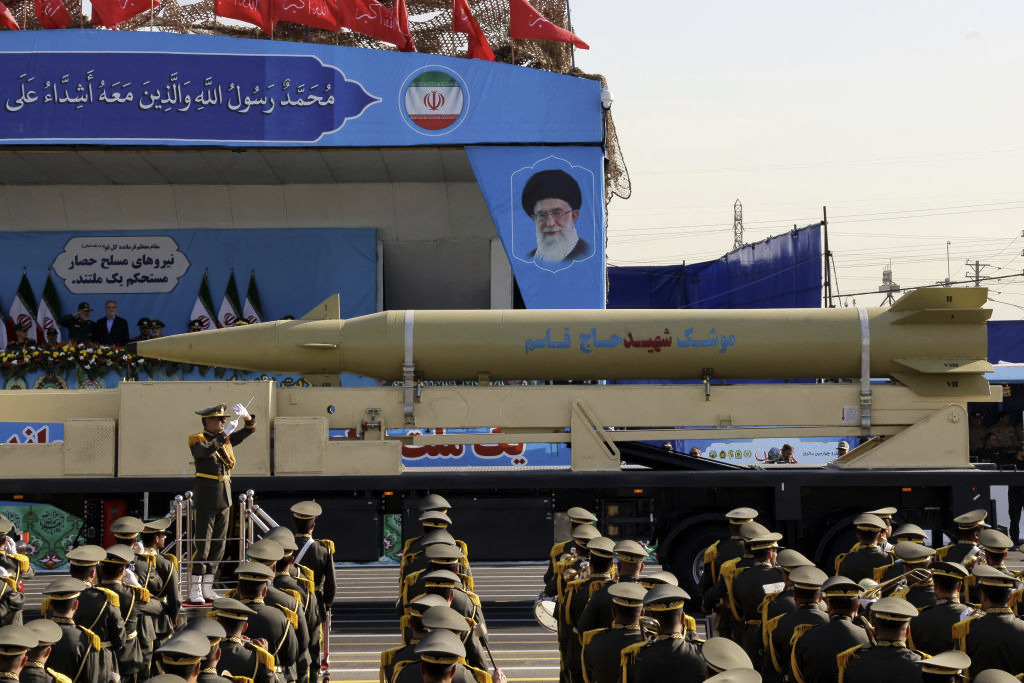
The Iranian regime, currently at one of the weakest points in its recent history, presents a crucial opportunity for the United States and its allies.
The collapse of its strongest regional ally, Bashar al-Assad's regime in Syria, has left Tehran without a key pillar of support in the Middle East. Iran's most powerful proxy groups, Hamas and Hezbollah, have suffered significant setbacks thanks to Israeli military operations. With Iran's economy in shambles and its isolation increasing, the regime is more vulnerable than ever before. This moment should not be squandered. It presents an unparalleled opportunity to curb Iran's ambitions -- permanently.
Since Donald Trump's return to the presidency, the Iranian regime is now extending an olive branch, supposedly willing to negotiate on its nuclear program.
Mohammad Javad Zarif, Iran's vice president for strategic affairs and a senior political figure, publicly urged Trump to restart diplomatic talks. "I hope that this time around, [Trump] will be more serious, more focused, more realistic," he stated. This overture for diplomacy is basically a strategic maneuver to buy time. Iran undoubtedly fears that Trump will not only reinstate crushing economic sanctions but, if those fail to satisfy him, he might possibly support Israeli military action against Iran's nuclear facilities.
The mullahs' sudden enthusiasm for negotiations means they are not planning to abandon their nuclear ambitions, but rather use them as a ploy to outlast Trump's presidency. Negotiations, for the regime, are nothing but a desperate attempt to prevent Trump from crippling its nuclear program beyond recovery.
The United States must not fall into Iran's trap. The Iranian regime's fundamental ideology remains unchanged. The regime is built on an unyielding foundation of anti-Semitism and anti-Americanism: "the Little Satan" that stands in Iran's way of one day defeating "the Great Satan." These core beliefs will not be altered by any diplomatic agreement. Iran's strategic goal remains "exporting the Islamic Revolution." No negotiations — past, present, or future — will alter that mission.
For the Iranian regime, the tactic of negotiating to buy time has paid off really well. Iran successfully reached a deal with the Obama administration which provided it with financial relief, and diplomatic legitimacy, and the promise of nuclear weapons in just a few years, which just so happens to be this coming October.
When President Barack Obama assumed office, Iran was on its knees, due to the Bush administration's tough sanctions. Obama, however, instead of maintaining pressure, pursued a "nuclear deal," agreeing to the Joint Comprehensive Plan of Action (JCPOA), which lifted sanctions and injected billions of dollars into Iran's economy. It was this financial windfall that enabled Tehran to resupply its proxy groups.
The consequences of this decision became clear on October 7, 2023, when Hamas, bolstered by Iranian support, launched a brutal invasion of Israel, followed the next day, unrelentingly, by Hezbollah from Lebanon. Iran, also emboldened, for the first time began launching ballistic missiles -- almost 200 of them -- directly from its territory at Israel, a country the size of New Jersey.
Iran's regime is now attempting to replicate its successes of lengthy negotiations with Obama and Biden with Trump. The payoff would provide Iran with time, money, legitimacy, and its nuclear program intact.
Iran wants to drag Trump into a four-year negotiation process and waste time until he is out of office.
Iran's ultimate ambition remains unchanged: acquiring nuclear weapons -- not just as a deterrent but as a crucial instrument for achieving its revolutionary Islamist objectives: annihilating Israel, exporting its revolution, and ultimately reshaping the global order in accordance with its extremist views.
Possessing nuclear weapons provides any regime with a protective shield against foreign intervention, removing the fear of retaliation. Given this reality, no diplomatic effort -- regardless of its structure -- will convince Iran to relinquish its nuclear ambitions voluntarily.
Unfortunately, Iran appears to be dangerously close to achieving nuclear breakout The only viable solution is to neutralize Iran's nuclear facilities now.
The correct course of action from the Trump administration is clear: reimpose maximum pressure, support Israel in targeting Iran's nuclear infrastructure, and ensure that the regime's delaying tactics do not succeed once again.
Dr. Majid Rafizadeh, is a political scientist, Harvard-educated analyst, and board member of Harvard International Review. He has authored several books on the US Foreign Policy. He can be reached at dr.rafizadeh@post.harvard.edu


